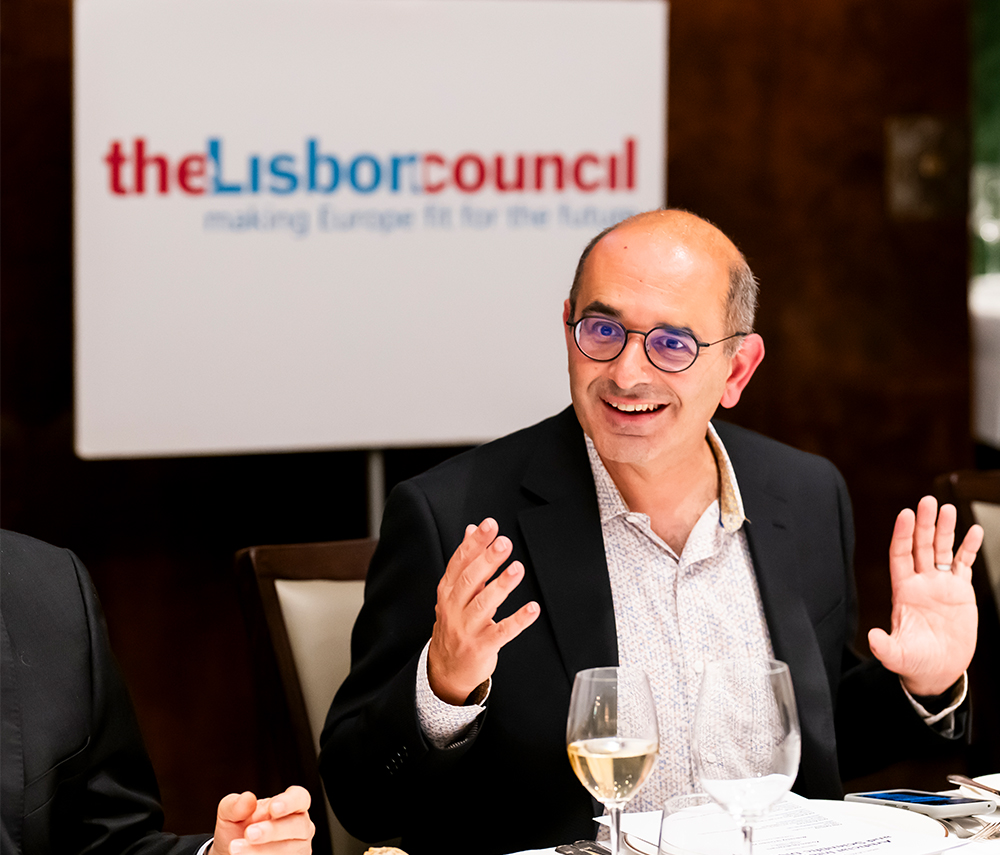October 2024
Artificial Intelligence and Scientific Discovery

The Lisbon Council convened Science Salon: A Deep Dive on the Intersection of Artificial Intelligence and Scientific Discovery. The first two sessions, characteristically, took place on the road, as it were, in Berlin and Amsterdam, with high-level participants coming together to exchange on the enormous potential of artificial intelligence to unlock new and exciting pistes in human health, energy consumption and other important fields. The conversations were animated by cutting-edge presentations from Zoubin Ghahramani, vice-president of research at Google DeepMind and professor of information engineering at University of Cambridge, and Joelle Barral, research and engineering senior director at Google DeepMind.
Among the high-level VIPs taking part were Pallas Agterberg, head of strategy and innovation, Alliander; Xavier Álvarez Farré, supercomputing advisor and training coordinator, National Competence Centre Netherlands; Zoë Brammer, government affairs and public policy manager, Google DeepMind; Mario Brandenburg, parliamentary state secretary to the federal minister of education and research, Germany; Dagmar van Ravenswaay Claasen, senior partner, Lumo Labs; Paul Groth, professor of algorithmic data science, University of Amsterdam; Natali Helberger, professor of law, digital technology and AI, University of Amsterdam; Ralf Herbrich, chair for artificial intelligence and sustainability, Hasso Plattner Institute; Wieland Holfelder, vice president of engineering, Google Germany; Morten Irgens, vice-chair of the confederation of laboratories for artificial intelligence research in Europe (CAIRNE); Volker Markl, director of the Berlin Institute for the Foundations of Learning and Data, Technical University Berlin; Christine Mieck, chief research manager, Helmholtz Association; Inge Molenaar, professor of education and artificial intelligence, Behavioural Science Institute, Radboud University Nijmegen; Sebastian Möller, professor of quality and usability, Technical University Berlin; Esther Smit, business director, Innovation Center for Artificial Intelligence (ICAI); Jonathan Wareham, professor of information systems, founder of the ESADE Institute for Innovation and Knowledge Management, ESADE Business and Law School; Max Welling, research chair in machine learning, University of Amsterdam; Jens Zimmermann, member of the Bundestag, member of the finance committee and the committee on the digital agenda, Social Democratic Party (SPD); and Theresa Züger, head of the AI and Society lab, Alexander von Humboldt Institute for Internet and Society.
Future sessions will take place in Milan, Paris and Brussels.
Read Artificial Intelligence for Scientific Discovery: Is Europe Ready for It?